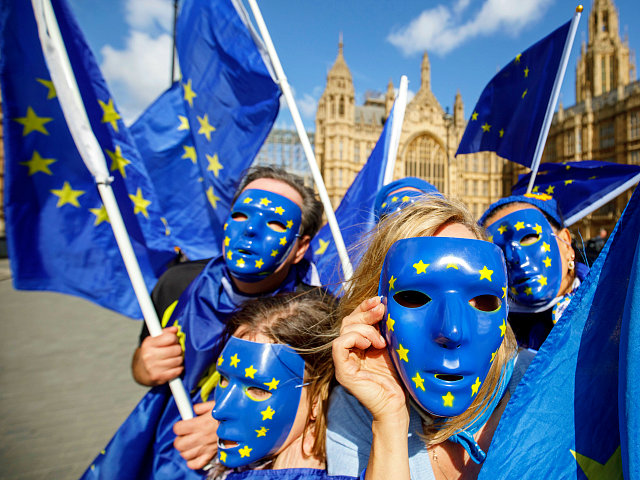The EU Parliament has issued politically correct guidance against using words like “mankind” and “man-made” in order to infuse its everyday language with social justice.
The EU assembly — which is not a true parliament insofar as it cannot propose or repeal laws but only amend and/or reject some of the legislation initiated by the unelected European Commission — has circulated a guidebook to bureaucrats and politicians urging them to update their language for a more politically correct age, the Telegraph reports.
“Gender-neutral or gender-inclusive language is more than a matter of political correctness,” it states, adding: “Language powerfully reflects and influences attitudes, behaviour and perceptions” — a view seemingly underpinned by the same philosophical outlook as the fictional Newspeak Dictionary in George Orwell’s seminal book Nineteen Eighty-Four.
Gendered words like “businessman” and “businesswoman” are to be dropped in favour of the more unwieldy “businessperson”, while “chairmen” are to become simply “chairs” — apparently due to concerns that “chairperson” has in practice tended to be applied only to women but not men.
“Statesmen” should also be substituted for the longer and generally clumsier “political leaders”, while “man-made” should be substituted for the colder and more clinical “artificial” or “synthetic”.
Politically Correct Plan to Scrap British Army’s ‘Elitist, Non-Inclusive’ Crossed Swords Crest and ‘Be the Best’ Slogan Postponed https://t.co/QJsBhwbkl2
— Breitbart London (@BreitbartLondon) December 24, 2017
“The use in many languages of the word ‘man’ in a wide range of idiomatic expressions which refer to both men and women, such as manpower, layman, man-made, statesmen, committee of wise men, should be discouraged,” the guidebook scolds.
“With increased awareness, such expressions can usually be made gender-neutral,” it hectors — suggesting “humanity” should replace the much-loved and well-used “mankind”, while the evocative “manpower” should become simply “staff”.
The parliamentary secretariat, which promised the injunctions were not “binding rules”, insisted the guidebook’s aim was merely to “avoid phrasings that could be seen as conveying prejudice, discrimination, degrading remarks or implying that a certain gender or social gender represents the norm”.
Critics may question the institution’s priorities in attempting to police language at a time when it is mired in widespread but little-reported allegations of unchecked sexual harassment, however.
The moment when Jean-Claude Juncker ruffled the hair of a colleague at the EU summit pic.twitter.com/0tL7xD00nO
— euronews (@euronews) December 17, 2018

COMMENTS
Please let us know if you're having issues with commenting.